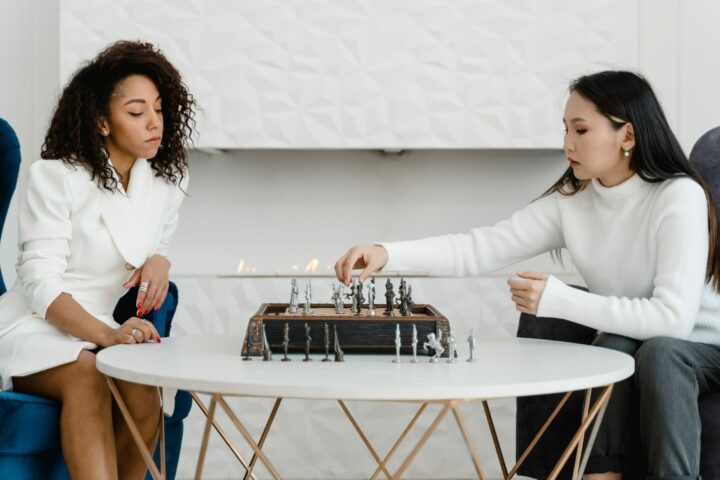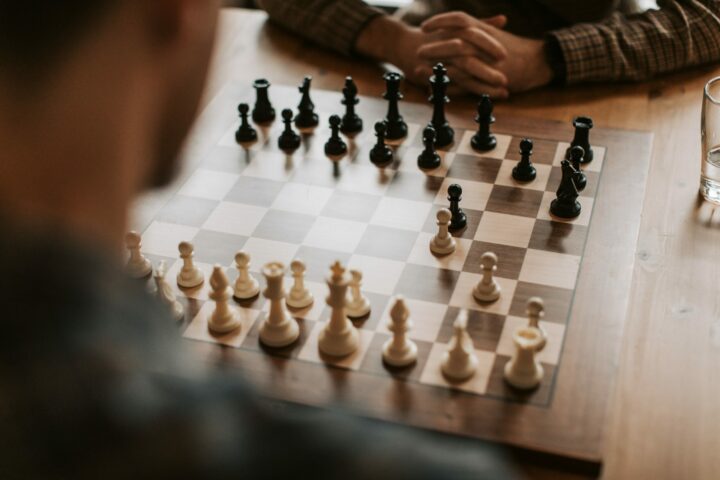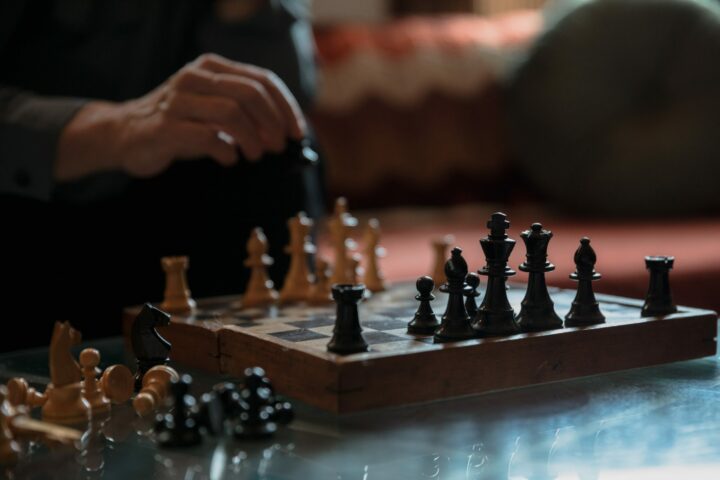Chess, the timeless game of strategy and intellect, is as much a battle of wits as it is a test of memory. The ability to recall previous moves, recognize patterns, and anticipate your opponent’s strategies is crucial for success on the board. If you find yourself asking, “What is the best way to improve my chess memory skills?” you’ve come to the right place.
In this article, we will explore a variety of thought-provoking and unique approaches to sharpening your memory in the game of chess. Get ready to elevate your mental prowess and claim victory like never before.
How does memory impact your performance in chess?
Your memory serves as the foundation for your performance in the intricate world of chess. A sharp and reliable memory allows you to effortlessly recall previous moves, learn from your mistakes, and anticipate your opponent’s strategies.
It enables you to recognize patterns, identify strategic themes, and make informed decisions. A strong memory not only helps you retain crucial information but also enhances your overall strategic thinking and decision-making abilities on the chessboard.
Can memory be trained?

Absolutely! Just like a muscle that can be strengthened with regular exercise, your memory can be trained and honed to its full potential in the realm of chess.
Through consistent practice and employing various memory techniques, you can improve your ability to remember and retain chess-related information. By dedicating time to memory training, you unlock a powerful tool that will greatly enhance your gameplay and elevate your performance to new heights.
What are the key memory techniques used by chess grandmasters?
Chess grandmasters have mastered the art of memory and utilize specific techniques to enhance their gameplay. One prominent technique is visualization, where they mentally picture the chessboard and pieces, allowing them to recall moves and positions with remarkable precision.
Another technique is association, connecting chess concepts or moves to memorable images or stories, making them easier to remember.
Additionally, mnemonic devices such as acronyms or rhymes are employed to remember opening variations or strategic principles. By learning and adopting these memory techniques, you can emulate the strategies of chess grandmasters and improve your own memory skills.
How can visualization enhance your chess memory?
Visualization is a powerful tool that can significantly enhance your chess memory. By vividly imagining the chessboard and mentally visualizing the positions of the pieces, you create a lasting mental imprint that aids in recall during gameplay.
Visualization allows you to explore potential moves, evaluate different scenarios, and anticipate your opponent’s strategies. With practice, this technique becomes second nature, enabling you to effortlessly navigate the chessboard in your mind and make informed decisions based on your mental images.
Are there specific memory exercises tailored for chess players?
Absolutely! There are numerous memory exercises tailored specifically for chess players to sharpen their mental faculties. One popular exercise involves memorizing and reproducing famous chess games from memory, helping to improve your ability to recall moves and positions.
Another exercise is solving chess puzzles and tactical problems, which challenges your memory by requiring you to remember the sequence of moves and identify winning strategies.
Additionally, studying and analyzing annotated games helps train your memory to remember key moves and positions. Incorporating these exercises into your practice routine will boost your chess memory and overall gameplay.
Is there a connection between chess and memory retention?
Indeed, there is a strong connection between chess and memory retention. Chess requires players to remember past moves, patterns, strategic principles, and opening variations.
By repeatedly engaging in chess games and studying the game’s intricacies, you exercise and strengthen your memory retention abilities. This process allows you to retain and recall chess-related information more effectively, leading to improved gameplay and strategic decision-making on the chessboard.
How can mnemonic devices improve your chess memory skills?
Mnemonic devices are powerful aids in enhancing your chess memory skills. These techniques involve creating associations between chess concepts, moves, or patterns and memorable cues or mental images.
For example, using acronyms or rhymes to remember opening variations or strategic principles can significantly improve your ability to recall them during gameplay.
Mnemonic devices tap into the brain’s natural affinity for remembering vivid or catchy information, providing you with a mental toolkit to strengthen your chess memory and improve your overall performance.
What role does pattern recognition play in chess memory?

Pattern recognition is a fundamental aspect of chess memory. The ability to identify recurring patterns and motifs on the chessboard allows you to make informed decisions and anticipate your opponent’s moves.
By recognizing familiar patterns, such as common opening sequences or tactical motifs, you can recall relevant strategies or maneuvers more efficiently.
Pattern recognition also enhances your overall understanding of the game, enabling you to spot opportunities or potential pitfalls based on similar patterns from past games. Developing your pattern recognition skills through practice and study expands your chess memory and strategic repertoire, paving the way for success on the board.
Are there memory-boosting strategies for opening moves in chess?
Absolutely! Mastering the opening phase of a chess game requires a solid memory foundation. To boost your memory in this critical stage, focus on studying and practicing specific opening variations rather than trying to memorize every possible move.
By understanding the underlying principles, strategic ideas, and key moves of your chosen openings, you can train your memory to recall the most important lines and positions. Additionally, repetition and regular gameplay will reinforce your memory of opening moves, allowing you to navigate the early stages of the game with confidence and precision.
How can reviewing your previous games enhance your memory skills?
Reviewing your previous chess games is a powerful way to enhance your memory skills and improve your overall gameplay. When you analyze your games, you engage in a mental exercise of recalling moves, evaluating positions, and identifying critical moments.
This active process strengthens your memory by reinforcing the connections between moves, strategies, and outcomes.
Additionally, reviewing your games allows you to learn from your mistakes and successes, extracting valuable lessons that become ingrained in your memory for future games. By incorporating regular game analysis into your chess routine, you not only boost your memory but also deepen your understanding of the game.
Can chess puzzles and tactics exercises improve your memory?
Absolutely! Chess puzzles and tactics exercises are not only a fantastic way to sharpen your tactical awareness but also enhance your memory skills. These exercises challenge your ability to recall and calculate sequences of moves, positions, and patterns.
As you solve puzzles and tackle tactical challenges, your memory is repeatedly tested and trained, strengthening the neural connections related to chess memory.
By incorporating puzzles and tactics exercises into your practice routine, you develop a sharper memory and improve your ability to recognize tactical opportunities during real games.
Are there memory-enhancing techniques for remembering endgame positions?
Certainly! Endgame positions often involve fewer pieces on the board, but they require precise calculations and accurate memory recall. To enhance your memory for endgame positions, it’s helpful to study and practice common endgame patterns and techniques.
By familiarizing yourself with key positions, such as rook endgames or pawn structures, you train your memory to quickly recognize and recall winning strategies.
Additionally, solving endgame puzzles and analyzing master-level endgame compositions can further improve your memory and understanding of these critical chess phases.
How does sleep impact your chess memory and performance?

Sleep plays a crucial role in both memory consolidation and overall cognitive function, which directly affects your chess memory and performance. During sleep, your brain processes and consolidates the information and skills you’ve acquired during the day, including chess-related knowledge and strategies.
Sufficient sleep helps solidify these memories, making them more accessible and reliable during gameplay. In contrast, sleep deprivation can impair memory, attention, and decision-making abilities, negatively impacting your chess performance.
Prioritizing quality sleep ensures that your brain is well-rested, allowing you to maximize your memory and perform at your best on the chessboard.
Are there memory-boosting dietary habits for chess players?
Absolutely! A healthy diet can contribute to improved memory and cognitive function, benefiting chess players in their pursuit of enhanced memory skills. Including brain-boosting foods rich in antioxidants, omega-3 fatty acids, and vitamins can support optimal brain health.
Examples of such foods include fatty fish, berries, nuts, seeds, leafy greens, and whole grains. Staying hydrated is also important for cognitive function, so remember to drink enough water throughout the day.
Additionally, avoiding excessive sugar, processed foods, and alcohol can help maintain stable energy levels and mental clarity. By adopting memory-boosting dietary habits, you nourish your brain and support your chess memory performance.
Can meditation and mindfulness practices enhance your chess memory?
| Memory Improvement Method | Description | Benefits |
|---|---|---|
| Visualization | Mentally picturing the chessboard and positions | Enhances recall and strategic planning |
| Mnemonic Devices | Using acronyms, rhymes, or stories to remember chess concepts | Aids in memorizing opening variations and strategic principles |
| Reviewing Previous Games | Analyzing past games to recall moves, evaluate positions, and learn from mistakes | Improves memory, decision-making, and understanding of strategic patterns |
| Chess Puzzles and Tactics Exercises | Solving puzzles to practice calculating moves and identifying patterns | Strengthens memory, tactical awareness, and critical thinking skills |
| Meditation and Mindfulness | Engaging in mindfulness practices to enhance focus and reduce mental distractions | Improves concentration, memory recall, and overall mental well-being |
Certainly! Meditation and mindfulness practices have been shown to have numerous cognitive benefits, including enhancing memory and focus. By incorporating these practices into your chess routine, you can improve your ability to concentrate, reduce mental distractions, and strengthen your memory recall.
Mindfulness exercises, such as deep breathing and present-moment awareness, help calm the mind and enhance cognitive clarity, allowing you to retain and recall chess-related information more effectively. Additionally, regular meditation can promote overall mental well-being, reducing stress and anxiety, which can positively impact your chess memory and performance.
Closing thoughts
In conclusion, developing strong memory skills is a vital component of mastering the game of chess. By employing various techniques such as visualization, mnemonic devices, and pattern recognition, you can enhance your memory and elevate your gameplay. Reviewing previous games, solving puzzles, and practicing endgame positions further strengthen your memory abilities in specific chess scenarios.
Additionally, factors like quality sleep, a healthy diet, and incorporating meditation and mindfulness practices can significantly impact your chess memory and overall performance.
Embrace these strategies, engage in regular practice, and unlock the true potential of your chess memory. With a sharpened mind and improved memory, you’ll navigate the chessboard with greater ease, strategy, and success. Happy gaming!




